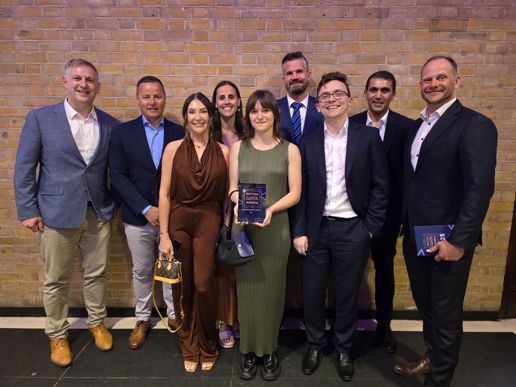Please take a chance, but make sure you first calculate the risk

Reproduced with permission from The Times Enterprise Network. To subscribe click here.
I have been thinking about my attitude to risk quite a lot since the new year. We know that it can change over time, according to circumstances, experience and with age. Unchecked, the decisions I make in business could also change. What would have seemed a perfectly sensible decision last year could leave me nervous this year. Given the economic uncertainties, emotion could take over, the heart ruling the head.
- Risk-taking, as with all behaviours, can be learnt. As the psychologists say, children that observe parents gaining pleasure from taking risks may well do so themselves. The opposite is also true.
In primary school my parents gave me a large pencil eraser that said: “You must not make misteaks.” Experience has shown me that that is absolutely the wrong advice. You only ever really learn from your mistakes. I have yet to meet a successful person in any field who has not made mistakes, benefited from lucky breaks or been prepared to do something that either has not been done before or was said to be impossible.
That said, the entrepreneurs and business leaders who I know typically take very calculated risks. They are not putting all their money on red. Like many of them, to make decisions in today’s economic environment I look at what has come before.
I grew up in the 1970s when we had high inflation, labour unrest, a contracting economy and high energy prices so today’s travails should be familiar. I remember my dad explaining that business cycles were like the seven bumper years and seven years of famine in Pharaoh’s dream in the Old Testament. The timings may have changed but the message still rings true. I have now endured several economic downturns and seen the importance of investing during the good years, as well as battening down the hatches for the tough ones that will undoubtedly follow.
The crucial question — and this takes me back to my appetite for risk — is how to decide where we are in the cycle? You will have your own view; mine has been informed by talking to the senior managers in our business as well as a wider perspective from both my business network and sources of information that I trust.
We are heading towards Ground Control’s March financial year-end, two years into our rolling five-year growth plan. The plan has us growing from revenues of just over £100 million to £300 million by March 2026 and our target of £200 million is in our sights for this year. As chairman, therefore, I have been meeting our senior team to assess whether the things we want to do can still be done given that budgets are under scrutiny. The primary focus is the immediate year ahead but we are also considering more closely the impact that decisions made today will have in future years. It is only sensible, given the pressures on our overheads, a tight labour market and higher cost of capital.
As I talk to my colleagues I have also been emphasising the need to keep an eye on the cash coming into the business. This is vital when money is no longer cheap and revenue is discounted by inflation. The working capital requirements of a business that wants to grow, and grow quickly, need to be understood by the whole team, not just our colleagues in finance.
When I took over as chief executive of a company called Iris Software back in 2001 a sale was not recognised until the salesperson brought the cheque into the office in time for the end-of-month cut-off. They did not receive their commission until that cheque cleared and sometimes it did not. Times have changed but it did mean that our cashflow and profitability were well aligned.
Back to today, we are looking at the relative amounts of capital required by the different businesses that form Ground Control, as well as the clarity and granularity of gross and net profit margins in those businesses so that we balance the risks. We also track if recent investments, whether in technology or people, are delivering the improvements to our productivity that we expected. When you have a wide employee shareholder base, as we do, there is also merit in reminding everyone to think like an owner; it can make a real difference.
Clear communication is important. There are lots of ways to do that but, in the context of planning and looking at strategic priorities, I like to paint a picture. I use the temples of ancient Greece for inspiration: our people and culture are our foundations; the columns are our core competencies, preferably no more than six, which are what make us special (you do not out-source these); the frieze sets out the scale of our ambition; and the roof is tiled with the stories of our fans, whether customers or suppliers, who are delighted to recommend us to others.
Your managers will also have views on what needs to change in your business so listen to them and hear what they are saying. Sometimes boards are guilty of listening, but are not really prepared to adopt new ideas. Our senior managers have taken time out to improve their interpersonal, leadership and commercial skills this year, training that has also helped to break down silos in our business. Our board was all ears when we hosted a mini-Dragons’ Den-style panel session last month to hear their ideas. Our aim was to provide constructive feedback on the proposals they were making: not just if we were “in” or “out”, but the reasons.
Some of the ideas we adopt from that session may turn out not to work but we have assessed the risks as best we can and have committed ourselves to making them happen. I am fully behind them and feel comfortable with the calls we have made. A good plan must hope for the best, prepare for the worst, but above all learn from the experience.

Ground Control’s intelligent quoting app recognised at the British Data Awards 2025

Why the landscape industry must lead the ESG charge





